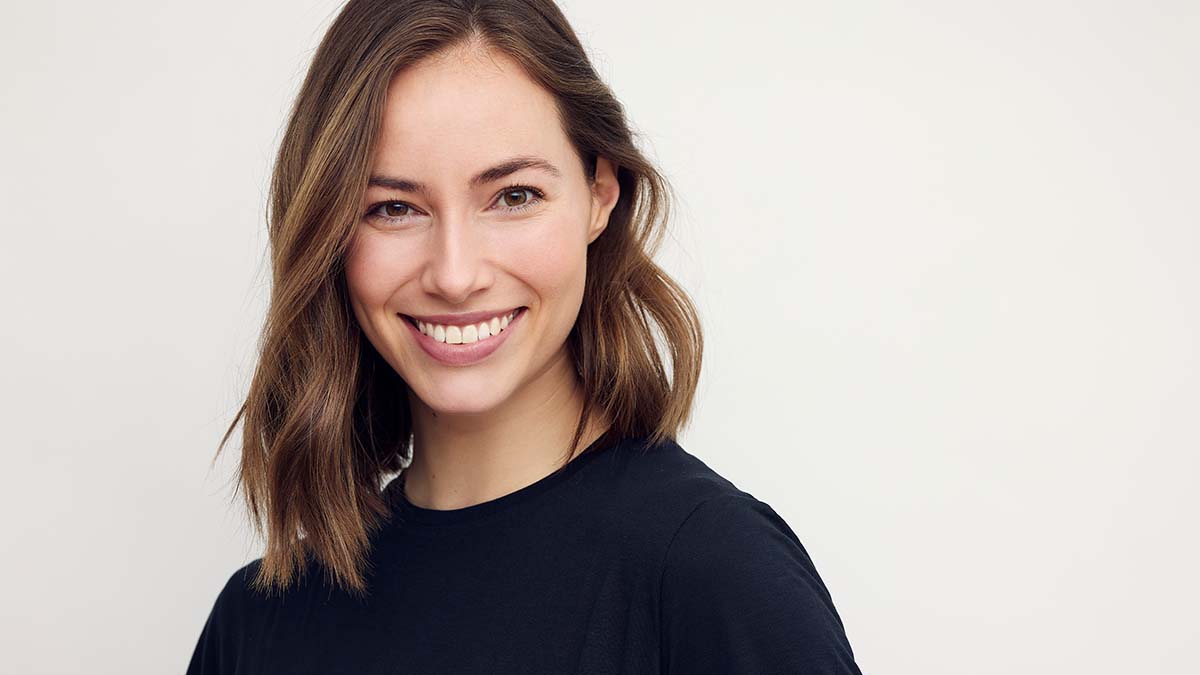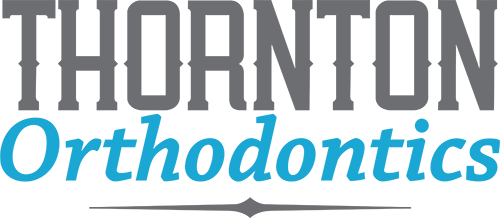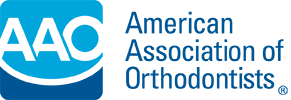Orthodontic FAQs


Thornton Orthodontics specializes in perfecting smiles with the latest techniques in orthodontic care, including the option of braces, clear aligners, and more. Serving both Eugene and Creswell, OR, our team is dedicated to providing personalized options to meet the unique needs of every patient. We pride ourselves on creating functional, beautiful smiles in a comfortable, friendly environment that feels like home.
Frequently Asked Questions About Orthodontics
What is orthodontics?
Orthodontics, sometimes known as dentofacial orthopedics, is a distinctive branch of dentistry that extends past the general education and practice obtained in dental school. It concentrates on identifying, preventing, and addressing irregularities in the teeth and facial structure.
What is an orthodontist?
What's the best age to visit the orthodontist?
How can I take care of my teeth if I’m wearing braces or a retainer?
- ALWAYS remember to brush your teeth after every meal and floss at least once a day.
- Make sure to use toothpaste that contains fluoride, and regularly use a fluoride rinse. This will help prevent cavities!
- When you take out your retainer to eat, make sure you brush your teeth, floss, and remember to keep it safe in its container so that it does not get lost or broken.
- Keep your retainer clean, too, by brushing it gently with a toothbrush and antibacterial hand soap. You may also soak it in a denture cleaner as instructed by your orthodontist. Do not put your retainer in boiling water or in the dishwasher.
- During your treatment, try to avoid foods with a lot of sugar, which increases the amount of bacteria that grows in your mouth, causing more plaque and possibly cavities.
- Avoid sticky and chewy foods (caramel, chewing gum, gummy bears), hard foods (hard candy, nuts, ice cubes), or any foods that could possibly get stuck in your braces (corn on the cob, ribs, taffy, etc.).
- Be sure to schedule your routine checkups with your family dentist. It is recommended that you continue to visit the dentist every six months.
If I get braces, how long do I have to wear them?
Do braces hurt?
Do I need to brush my teeth more often if I have braces?
Braces can present some challenges in cleaning, but with the right tools and techniques, you can maintain excellent oral hygiene. Regular brushing helps eliminate any food particles trapped between the braces. Additionally, daily flossing is crucial for reaching areas between your braces that your toothbrush can’t access. Brushing AND flossing, as usual, remain important to maintain the health and cleanliness of your teeth, gums and mouth. When plaque and trapped food are left on the teeth and around braces, the outcome can be cavities, swollen gums, bad breath and permanent white marks on the teeth. Maintaining good oral hygiene helps to minimize your time in treatment, and contributes to a healthy result.
If I have braces, do I still need dental checkups every six months?
Will my braces interfere with my school activities like sports, playing an instrument, or singing?
How do I schedule my next appointment?
Simply call our practice! Our friendly front desk team will be happy to help schedule your next appointment at your convenience. If you are a new patient or have been referred to our practice, please let us know and we will provide you with all of the information you need.
Have more questions? Email our team at: info@thornton-ortho.com.
What happens if orthodontic problems are not treated?
Generally, untreated orthodontic problems may become worse. Lack of orthodontic treatment can be a factor in tooth decay, gum disease, destruction of the bone that holds teeth in place, tooth loss, chewing/digestive difficulties, or abnormal wearing away of tooth enamel. Ultimately, orthodontic treatment may cost less than the restorative treatment that could be needed to treat decayed, worn or lost teeth, or gum disease.
My dentist said I need to have some missing teeth replaced, but I need orthodontic treatment first – why?
Your dentist is probably recommending orthodontic treatment so that you can reach optimal dental health. Many complicated tooth restorations, such as crowns, bridges and implants, can be best accomplished when the remaining teeth are properly aligned and the bite is correct.
I’ve been seeing ads for straightening my teeth at home. Why not give it a shot?
Moving teeth is a complex biological process and there is a lot that goes into it. That’s why orthodontists must go to school for so many years to be licensed to practice this specialty. Many AAO orthodontists offer free or low-cost initial consultations. Isn’t your dental health worth a consultation with an orthodontist?
What complications can arise from an untreated crossbite?
If overlooked, crossbites can trigger jaw misalignment, uneven jaw growth, premature wearing of the tooth enamel, facial asymmetry, and improper chewing, among other dental issues.
How can I tell if my child or I have a crossbite?
The prominent indication of a crossbite is when the upper teeth fit inside the lower teeth in the back and/or the front when biting down normally. Should you suspect a crossbite, seeking a professional evaluation from an orthodontist is imperative to ensure treatment is started at the optimal age.
How Do I Prepare a Hesitant Child for Braces?
For parents considering braces for their children, it’s essential to prepare them for this journey. Speak positively about the experience, emphasizing the benefits. Let them know the orthodontist and their team will do everything possible to make the process go as smoothly as possible. Books and videos about getting braces can also make the transition easier for young ones.
Are There Benefits to Braces Besides Having Straighter Teeth?
Contrary to popular belief, braces are not purely cosmetic. They can significantly improve oral function. Also, braces are no longer as intrusive or uncomfortable as they once were, thanks to technological advancements.
Are there things I can do at home to treat discomfort?
Keep supplies on hand to address possible situations. Here are six suggestions:
Orthodontic wax.
Dental floss.
Tweezers.
Interproximal brushes.
Topical anesthetic (such as Orabase or Ora-Gel).
Over the counter pain relievers (such as one taken for a headache).
A warm salt water rinse can be soothing, as well (1 tsp. salt to 8 oz. warm water).
How Long Will My Treatment Last?
Treatment duration varies depending on the severity of the issue and the type of treatment. Your orthodontist will be able to provide the most accurate timeline for your treatment.
Once I finish orthodontic treatment, my teeth will remain straight forever, right?
Teeth move throughout one’s lifetime, making it important to wear retainers as prescribed by your orthodontist to maintain your healthy, beautiful smile.
Why are retainers prescribed?
Retainers are prescribed for two reasons: first, to allow the bone that holds teeth to rebuild after teeth have moved, and second, to maintain the healthy new positions of teeth after active orthodontic treatment ends. Your body changes your whole life, and your teeth change too. The only way to keep your teeth in the ideal position created by your orthodontic treatment is to wear retainers for life!
Can I eat with my retainer on?
It is recommended to take out removable retainers while eating to prevent potential damage. For fixed retainers, avoid biting into foods that could potentially break wire loose such as apples and carrots.
Do I Need to Wear My Retainer Forever?
Retainers help maintain the results of braces or aligners. Typically, a retainer is necessary for a lifetime, though the frequency of wear may decrease over time. Your orthodontist will provide guidance based on the stability of your teeth alignment.
What do I do if I lose or break my retainer?
If lost or broken, contact your orthodontist immediately. Getting a replacement or fixing it is crucial to avoid teeth shifting.
How long should I wear my retainer each day?
The duration varies depending on the advice of your orthodontist and the stage of your post-treatment.
Does insurance cover orthodontic treatment?
Many people have dental insurance that includes orthodontic benefits, usually provided by their employer. Such insurance covers a portion or percentage of the fee for orthodontic treatment, many times there may be a specific dollar amount or lifetime maximum. If your dental insurance is through your employer, your human resources department may be able to provide coverage details. The information can also be obtained directly from the insurance company. With your permission, the orthodontist may be able to confirm your insurance benefits for you, such as:
The amount of coverage or the percentage of the fee covered
If there are limitations to your coverage
Whether you are required to choose from the insurance company’s network of providers
Not all providers used by insurance companies to provide orthodontic treatment are orthodontists. To ensure any provider you are interested in using is an orthodontist, check the Find an Orthodontist service, where you will find members of the American Association of Orthodontists (AAO). The AAO only admits orthodontic specialists as members.
Does Insurance Cover Adult Orthodontics?
Some dental insurance plans offer an annual or lifetime maximum benefit for adult orthodontics. If you plan to get orthodontic treatment, contributing to an HSA or FSA account can also help finance your treatment.
Can I use my flexible spending account or health savings account funds for orthodontic treatment?
Yes, funds from flexible spending accounts and health savings accounts can be used to pay for orthodontic treatment. Talk to your orthodontist about how to make the best use of your benefits.
Do you accept my insurance plan?
We accept all insurance plans that have orthodontic benefits with just a few exceptions. We file claims on behalf of our patients, and our team is here to help you navigate the insurance process.
Let’s discuss how we can enhance your smile. Schedule a consultation today by calling 541-686-1732.
Thornton Orthodontics
Business Hours
Monday – Thursday: 8:00 AM to 5:00 PM
Eugene Office
Creswell Office







